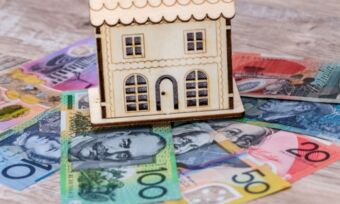How to use equity to buy a second property with no deposit
Wondering how to buy a second property with no deposit? Unlocking the equity in your current property can be a pathway to expanding your property portfolio. Here are some important things to know.

Wondering how to buy a second property with no deposit? Unlocking the equity in your current property can be a pathway to expanding your property portfolio. Here are some important things to know.
What is equity?
In a property context, equity describes the ownership stake you have in a home. Put simply, your equity in a property is the difference between the value of that property, and the amount of any loan you currently have on it. For example, if a property you own is valued at $800,000, and your mortgage sits at $200,000 left to pay, then your equity in the property is $600,000 – the difference between the two figures.
That said, if you are looking to purchase a second property, having $600,000 in equity is not the same as having $600,000 in cash. You will still need to jump through additional hoops and satisfy additional criteria when applying to a bank or lender for a home loan. It’s also important to note that your ‘usable equity’ – the amount you can leverage towards a new property purchase – may be lower than the total equity you have.
How does equity work when buying a second home?
If you plan on using equity to buy property and you apply for a mortgage, a bank or lender will typically calculate what they determine to be your usable equity. This calculation is done by considering both the equity you have in your current property, and considering the loan to value ratio (LVR).
According to CommBank, most banks are generally comfortable lending up to 80% of the value of your home, minus the amount you owe to the bank. So let’s take a look at the above example again, and consider how much the usable equity might be:
- Property value: $800,000
- 80% LVR: $640,000
- Mortgage owing: $200,000
- Usable equity: $440,000
Because banks and lenders will typically apply this calculation when working out how much they are willing to lend you for a property purchase. When buying a house using equity in another house, your usable equity is generally likely to be lower than the total amount of equity you have.
Can I use equity as a deposit?
If you plan on using equity to purchase another property, then equity can be used towards your deposit, but there are some important considerations to keep in mind. National Australia Bank says that if you want to purchase an investment property, then you will need to pay at least a 20% deposit to avoid paying lenders mortgage insurance (LMI), and this can be drawn from your usable equity.
It’s worth keeping in mind that the deposit is not the only amount you’ll need to pay when purchasing a home – you will als need to factor in costs like stamp duty and legal fees. Using Canstar’s stamp duty calculator as a rough guide, we calculated that to purchase an $800,000 home in NSW as an investment property, the approximate stamp duty cost would be $31,872.
The comparison rate for all home loans and loans secured against real property are based on secured credit of $150,000 and a term of 25 years.
^WARNING: This comparison rate is true only for the examples given and may not include all fees and charges. Different terms, fees or other loan amounts might result in a different comparison rate.
 Investor
Investor
 10% min deposit
10% min deposit
 Redraw facility
Redraw facility
 Investor
Investor
 20% min deposit
20% min deposit
 Redraw facility
Redraw facility
Canstar may earn a fee for referrals from its website tables, and from Sponsorship or Promotion of certain products. Fees payable by product providers for referrals and Sponsorship or Promotion may vary between providers, website position, and revenue model. Sponsorship or Promotion fees may be higher than referral fees. Sponsored or Promoted products are clearly disclosed as such on website pages. They may appear in a number of areas of the website such as in comparison tables, on hub pages and in articles. Sponsored or Promoted products may be displayed in a fixed position in a table, regardless of the product’s rating, price or other attributes. The table position of a Sponsored or Promoted product does not indicate any ranking or rating by Canstar. For more information please see How We Get Paid.
How can you boost equity in your property?
Equity is all about the value of your property and the amount of debt you have owing, so therefore, if you want to boost your equity, it makes sense to either increase the potential value of your property, reduce the amount of debt owing, or both.
Increase the potential value of your home
Property values in Australia rose significantly in the first four years of the current decade – according to CoreLogic figures, house values in major cities grew by 33.9% in this period. While value growth now appears to be slowing, the value of your home has likely increased passively over the past several years.
That said, undertaking a home renovation project can also add value to your property. Cherie Barber, founder of Renovating for Profit, told Canstar about five projects that can increase your home’s value, from kitchen makeovers to sprucing up the facade. Not all renovations will add value, so it pays to think strategically about this, and you may also need to factor in the cost of having your home professionally valued post-renovation.
Reduce the amount of debt you owe on your property
The less you owe on your property, the greater your equity can potentially be, so it can pay to think about ways to pay down your home loan debt quickly. If you’re wondering where to start, Canstar has a list of strategies you can use to pay off your home loan faster, including using a home loan offset account as a way to make your savings work for you.
How do you use the equity in your home to buy another property?
The process of using equity to purchase another property entails using the equity you currently have in your property towards a deposit on purchasing a second. It could also be the case that, the higher the usable equity you have in your property, the more you might be able to borrow to purchase another one and increase your portfolio.
If you plan on using equity to buy a second property, though, then bear in mind that equity is only one of a number of factors that banks and lenders will consider. The primary concerns of any lender are likely to be how much you can afford to borrow on your salary, and whether or not they believe you have the capacity to ‘service’ or pay back the loan.
When contemplating how to use equity to buy a second home, it’s important to keep all the associated costs in mind. NAB says that, when using equity to purchase an investment property, it can make sense to apply the ‘rule of four’, meaning that you should multiply your usable equity by four to get an idea of what your maximum purchase price should be.
Can you use equity in land to finance a construction loan?
If you own a block of land with a land loan that you’re paying off, and you want to refinance to a construction loan to start building your dream home, then you may be able to use any equity you have accumulated in the land towards the deposit. In Australia, the value of land is often greater than the value of the home sitting on it, and if you have had a block of land and held onto it for a while, you may have accumulated significant equity in it. That said, construction loans can be complex so it can pay to talk to a professional like a mortgage broker to understand your options.
Cover image source: Zivica Kerkez/Shutterstock.com
This article was reviewed by our Editor-in-Chief Nina Rinella before it was updated, as part of our fact-checking process.

Alasdair Duncan is Canstar's Content Editor, specialising in home loans, property and lifestyle topics. He has written more than 500 articles for Canstar and his work is widely referenced by other publishers and media outlets, including Yahoo Finance, The New Daily, The Motley Fool and Sky News. He has featured as a guest author for property website homely.com.au.
In his more than 15 years working in the media, Alasdair has written for a broad range of publications. Before joining Canstar, he was a News Editor at Pedestrian.TV, part of Australia’s leading youth media group. His work has also appeared on ABC News, Junkee, Rolling Stone, Kotaku, the Sydney Star Observer and The Brag. He has a Bachelor of Laws (Honours) and a Bachelor of Arts with a major in Journalism from the University of Queensland.
When he is not writing about finance for Canstar, Alasdair can probably be found at the beach with his two dogs or listening to podcasts about pop music. You can follow Alasdair on LinkedIn.
The comparison rate for all home loans and loans secured against real property are based on secured credit of $150,000 and a term of 25 years.
^WARNING: This comparison rate is true only for the examples given and may not include all fees and charges. Different terms, fees or other loan amounts might result in a different comparison rate.
 Owner occupied
Owner occupied
 20% min deposit
20% min deposit
 Redraw facility
Redraw facility
Try our Home Loans comparison tool to instantly compare Canstar expert rated options.
The comparison rate for all home loans and loans secured against real property are based on secured credit of $150,000 and a term of 25 years.
^WARNING: This comparison rate is true only for the examples given and may not include all fees and charges. Different terms, fees or other loan amounts might result in a different comparison rate.






